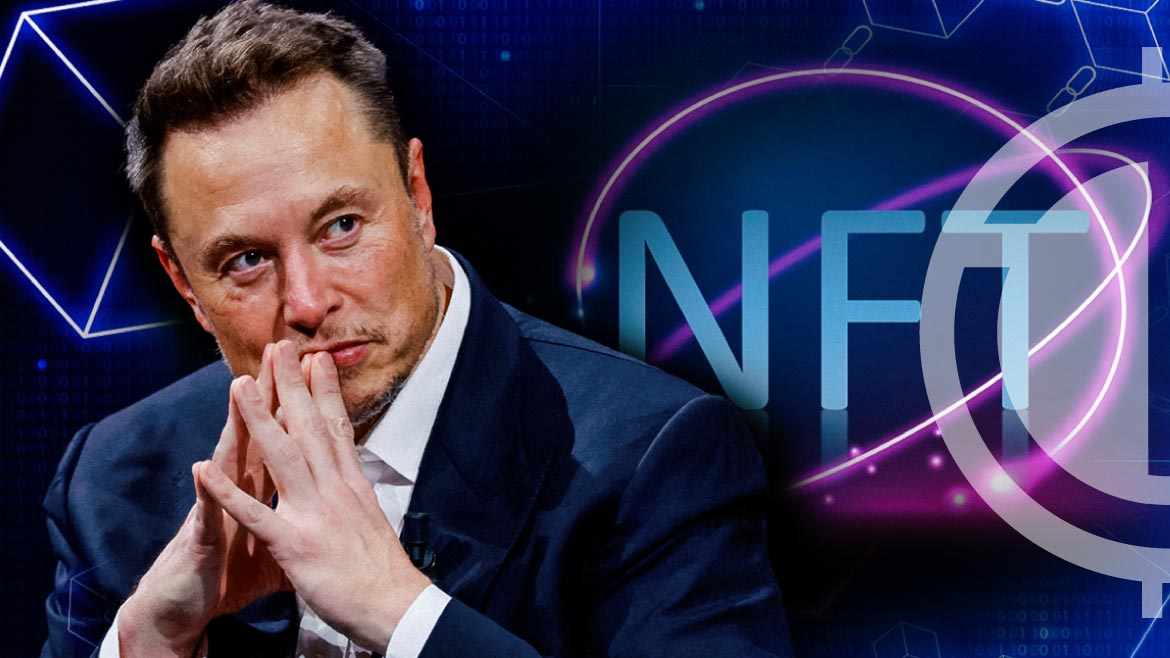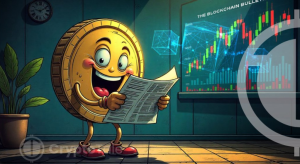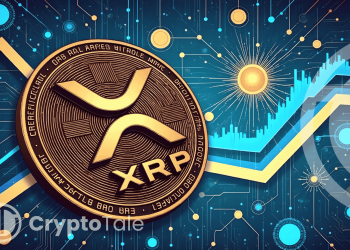- Elon Musk criticizes the common practice of linking NFTs to external servers, emphasizing the need for on-chain storage of digital assets.
- Bitcoin Ordinals, a form of NFT on the Bitcoin blockchain that allows for direct encoding of digital assets, was highlighted as a secure alternative.
- Despite alternatives and criticisms, Ethereum remains the dominant platform for NFT trading, holding 84% of the market share.
Elon Musk, Tesla CEO and tech entrepreneur, recently expressed skepticism about the current state of non-fungible tokens (NFTs) during an episode of The Joe Rogan Experience podcast, aired on October 31. Musk critiqued the common practice in the NFT industry of linking non-fungible tokens to external servers instead of storing the digital assets directly on the blockchain. He underscored the potential risk this poses to the digital assets, emphasizing their vulnerability if the hosting company were to cease operations. He emphasized the need to encode the JPEG of the NFT directly in the blockchain to ensure its permanence.
Musk’s comments inadvertently drew attention to Bitcoin Ordinals, a form of NFTs on the Bitcoin blockchain. Introduced in January by developer Casey Rodarmor, following the Taproot soft fork in November 2021, Bitcoin Ordinals allows for the encoding of digital assets directly on the blockchain. This method addresses the concerns raised by Musk, ensuring the permanence of the digital assets as long as the Bitcoin network remains active.
The cryptocurrency community, particularly those in favor of Bitcoin, responded positively to Musk’s critique. Cryptocurrency analyst Will Clemente highlighted the growing number of Ordinals inscriptions, which had reached 38 million at the time of his comment. Rohun “Frank” Vora, creator of NFT projects DeGods and y00ts, praised Ordinals as an elegant solution to a common criticism of NFTs. Meanwhile, an Ordinals developer, known pseudonymously as “Leonidas,” showed their support by inscribing the 19-second video clip of Musk’s comments onto the Bitcoin blockchain.
However, it is important to note that not all NFT projects on the Ethereum blockchain follow the practice criticized by Musk. Some projects, such as Larva Labs’ Cryptopunks, have moved their NFTs on-chain to ensure their longevity and accessibility. Additionally, decentralized storage platforms exist to provide backup options for NFT owners.
Despite the criticisms and the rise of alternatives like Bitcoin Ordinals, Ethereum continues to dominate the NFT market, accounting for 84% of all NFT trading volumes as of June, according to data from CoinGecko. Bitcoin and ImmutableX follow, with market shares of 11% and 2.5%, respectively.












